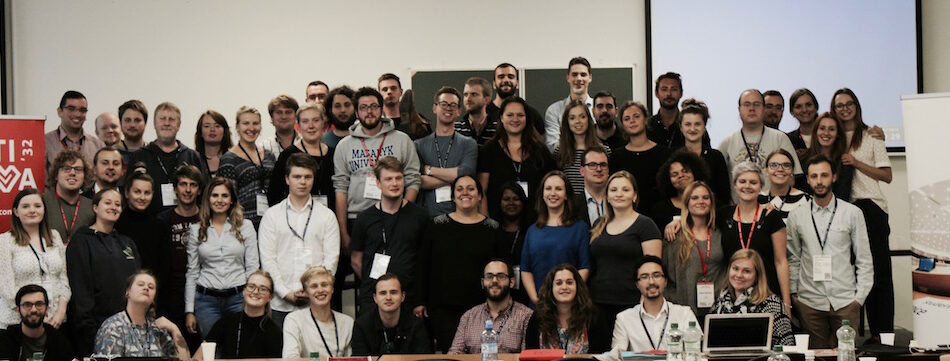
Students discuss education and skills for the future of Europe
BRATISLAVA – Student representatives from across Europe gathered in Bratislava, Slovak Republic, for their 32nd European Student Convention between 30th September and 2nd October to reflect on education and skills for the future of Europe.
The conference focused on 3 main themes:
- the interlinks between formal, non-formal and informal learning
- recognition of education as an instrument to broaden participation in education and communities
- students’ views on employability and skills policies
Through interactive workshops and informal discussions, student activists reflected, among others, on ways forward the EU New Skills Agenda for Europe and the implementation of Erasmus+ and Council of Europe’s Reference Framework of Competences for Democratic culture.
Education – between short-term interest and societal needs ?
One of the recurring themes among students has been the tension between education and the labour market, as well as how formal learning and non formal learning should and could combine. A general agreement was that the role of education is to provide learners with competences and skills to understand the job and its future developments, instead of focusing on specific short-term needs of the labour market.
“We need to have a critical approach on what student and graduate data we actually need and what it is used for. There is a need for evidence-based policies, but there is also the danger of policy-based evidence. Employability should be seen as a much broader concept than preparing students for their dream job that will most likely not be stable throughout their lifetime.” says Lea Meister, President, European Students’ Union
The question of extremism and radicalisation
Although the issue may differ in nature, in many European countries the rise of radicalisation and extremism stirs the debate on the need for active citizenship education and human rights awareness. Ways to combat radicalisation bring about the debate on where to draw the line between free speech and intimidation.
“We need more transversal skills, fair recognition of skills, including those of refugees and to think more form a lifelong learning perspective. We need more flexibility in study pathways and more steps towards student-centred learning. In the future, we hope to see more cooperation among student unions across the world to advance our common student struggles.” says Blazhe Todorovski, Vice President, European Students’ Union
Background:
The European Students’ Convention (ESC) is a biannual event organised by ESU where students’ representatives from the national unions of students from 38 different European countries, other stakeholders, experts and policy-makers have the opportunity to meet and discuss about the recent and future developments of higher education.
ESU usually organises the ESC in the country which is holding the presidency of the council of the European Union at that point of time, in order to create synergies with the country presidency’s priorities on education, or in another country/city with a significant relevance for Europe as a whole.
For more information, please feel free to consult the event webpage: https://www.esu-
